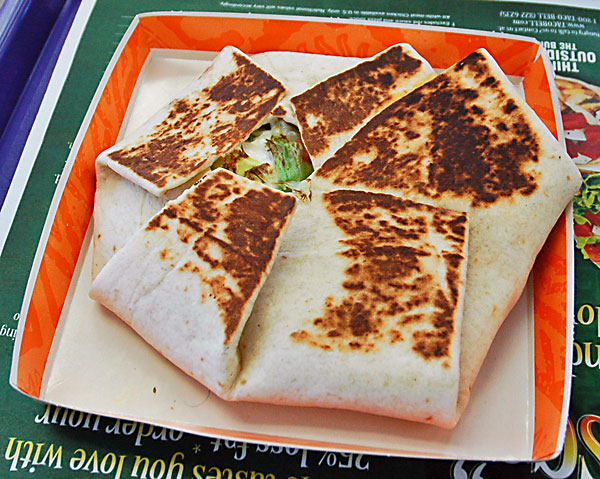Parole Officer Career
Parole Officer Career
The Real Poop
We know why the uncaged jailbird sings. It's because he got himself a great parole officer.
Poor John Valjohn. He got picked up a few years ago with a plastic gun trying to rob a 7/11. He was arrested before he could even snag a loaf of bread. (It didn't occur to him to go for the money in the cash register. We didn't say he was the brightest bulb in the box.) John did three years of hard time and now has a chance to see the light of day as a free man…sorta.
Here's where a parole officer comes in. Parole officers are law enforcement specialists who supervise and help offenders who are getting released from prison. They enter the picture to try to keep the newly released from getting into trouble on the outside (while freeing up space in our prisons and saving taxpayers a little money) and, in the event that their efforts are unsuccessful, to report any transgressions so the parolee can be thrown back in jail and kept off our streets.
Parole officers are hired by either the local or federal government, then are paid by and report directly to the parole board to which they are assigned. They must be tough as nails, yet compassionate enough to provide emotional support for parolees. Think of this job as a combination of Dr. Phil and a UFC fighter. (These two may not appear to have anything in common, but they're both skilled at backing someone into a corner.)
Oftentimes, people confuse parole officers with probation officers. Though their jobs are somewhat similar, parole officers assist offenders coming out of prison before their sentences are finished, while probation officers assist individuals that were put on probation in lieu of going to jail. Then there are those who assist offenders who have just escaped from prison, but they don't really have an official title. The only qualification for that one is that you own a reliable getaway car.

Oh yeah. Totally inconspicuous.
One of a parole officer's main duties is to prevent offenders from committing any more criminal acts. Yeah, you're pretty much their mommy. Only this time, Mommy does a good job. Those dreamers with a desire to make society a safer place, rehabilitate criminals, and conquer interesting challenges may enjoy the life of a parole officer.
This is not your work-behind-a-desk type of a job. Most of the work is conducted outside of the office. In fact, parole officers generally assist between eighty to 120 parolees at one time. They conduct interviews with offender's families and friends to get an idea if the parolee is still involved in crime or changing their way of life.
They may check up on a parolee at their place of business, at home, or at their family's house. Or even at the library, if they suspect that's where the parolee is spending a majority of his time. Hey, maybe the guy was arrested for failing to pay overdue book fees, you don't know.
Parole officers must get to know all the ins and outs of their parolees' lives. Those who are shy need not apply for this job. You must be confident and able to hold your own in tense situations. The path back to reentering society is often a stressful time for offenders, and you're the one who has to be there to hold their hand (after first checking to make sure it isn't grasping a weapon of some kind). It can be an uphill battle that's a little less difficult with the help of a parole officer.
Furthermore, parole officers often begin their work before the offender is released. It's their job to create a plan for the parolee to facilitate a smooth transition from prison to the outside world. This plan includes assisting the parolee by finding a place for them to live, securing their employment, finding a school and helping the offender obtain welfare benefits.
They may also want to let their parolee know about any fast food restaurants that may have closed down or opened up since they were incarcerated. Sometimes when you get out of jail, the first thing you need is a beefy crunch burrito from Taco Bell.

A Crunchwrap Supreme will also do the trick.
If a crime is committed during the parolee's sentence, parole officers must interview witnesses, keep their offender under surveillance, search the offender's house, and arrange a drug testing.
Because of the dangerous nature of the job, parole officers must carry a firearm in order to defend themselves. A parolee's family and friends may not be so keen on having an officer prowl around their houses, especially if they're involved in any illegal activity. Those coppers. Always snooping around when all you're doing is minding your own business, looking out for a family member in need by helping them with their smuggling operation. What a world we live in.
There is a bright side to a parole officer's job, and it isn't just that you get to carry a badge, which is cool. Helping a parolee enter society and begin a successful life is very fulfilling. Once an offender's parole sentence is completed, the relationship ends (we totally saw it coming; they were all wrong for each other), and it's up to the individual to take full control of their life.
Unfortunately, these success stories are in the minority. Roughly two-thirds of parolees go back into the prison system within three years. However, even when this happens, the offenders in question are heading back to prison because they still pose as a threat to society. When you look at it that way, it's a win-win for parole officers.